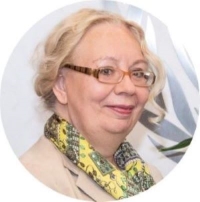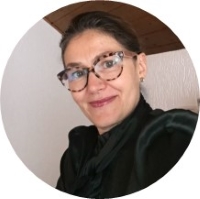 |
Anne Aboh-Dauvergne Anne Aboh-Dauvergne has been working for more than 30 years in the language industry: in the public and private sector, in the academic world, and since 2003 in international organizations: at the International Criminal Court (ICC), and the Office of the United Nations at Geneva (UNOG), where she currently holds the position of Chief of the Multilingual Technology Section. Her professional interests focus on CAT tools development and management; change management in language services and repurposing of language profiles; support services for translators and interpreters; multilingual terminology management; terminology for languages of lesser diffusion. She is a strong advocate for training and continuous learning. She holds an MA in translation, and advanced degrees in terminology and European Studies. |
|
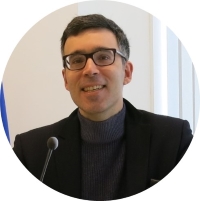 |
Yassin Amartib Yassin Amartib is the Head of the Language Technology Sector in DG Interpretation, European Commission. He has a background in linguistics and IT project management and is currently involved in the uptake of cloud technology, data management techniques and artificial intelligence in the European Commission. He coordinates the development and deployment of speech technology applications (such as speech recognition and speech synthesis) that improve the accessibility of conferences and support meeting organisers with automatic transcriptions of their events. |
|
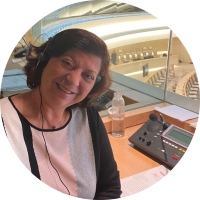 |
Alma Barghout Alma Barghout is currently Chief of the Arabic Interpretation Section, Interpretation Service, Division of Conference Management at UNOG. She started her career in 1995 as a translator at United Nations Headquarters in New York. She then transferred as a translator at UNOG before joining the Interpretation Service in 2002. She holds a BA in Translation and a MAS in Interpreter Training from the University of Geneva’s Faculty of Translation and Interpreting (FTI). She teaches interpreting since 2014 at the MA in Conference Interpreting and since 2017 at the Certificate of Advanced Studies (CAS) in Interpreter Training of FTI. |
|
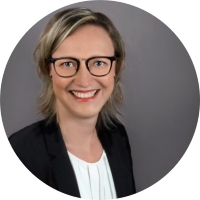 |
Viviane Brunne Viviane Brunne is part of the Conferencing Today & Tomorrow – 2 (CTT-2) team organizing InnoVent 2. For CTT-2, she studied how the COVID pandemic impacted conference organization in international Geneva and how client expectations have been evolving since. In response to client feedback, she developed the information portal for conference organizers on the UN Geneva website. She previously helped set up the Knowledge & Learning Commons, an innovative learning initiative at the UN in Geneva (UNOG). In more than 15 years within the UN System she has worked on innovation, programme and change management, partnerships, research, analysis, and communication, including at the Office of the Director-General, UNOG, the United Nations Economic Commission for Europe (UNECE), and UNAIDS. Prior to joining the UN she was Executive Director of the German AIDS-Society. She has a PhD in Social Science. |
|
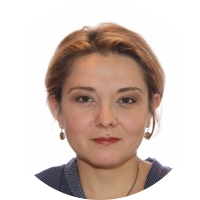 |
Mihaela Calacean Mihaela Calacean is Project Manager for Speech Technologies and their applications at the European Commission. With a background in computational linguistics, she is responsible for the fine-tuning of speech recognition models for EU specific domains, coordinating the efforts of 60 interpreters contributing to the project. She also manages the development of the new e-Loqui platform which provides neural net synthetic voices for the creation of the speech output for e-learning and communication content. Before joining DG SCIC in 2020, she was responsible for driving complex natural language processing projects, designing and developing new Text-to-Speech (TTS) voices for domain-leaders like Cerence, Nuance and IBM. |
|
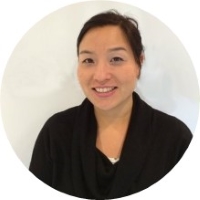 |
Celine Cheung Celine Cheung is currently the Chief of Language Support Unit in the Multilingual technology Section. She has a background in Computer Engineering and did her post graduate studies in Natural Language Processing, information retrieval. She started her UN career in 2005 at ESCWA in the substantive ICT Division. Since then, she worked as Business Analyst on various global enterprise applications (such as iNeed, Electronic Fuel Management System (EFMS-2), Enterprise Identity Management System (EIDMS), gDoc) in different Duty Stations including peacekeeping missions before joining Languages Service at United Nations Office at Geneva. |
|
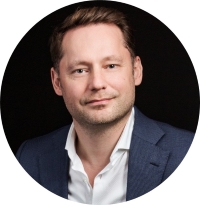 |
Ramunas Cesonis Ramunas CESONIS (Ramūnas ČESONIS) is the Head of the Lithuanian Language Unit at DG Interpretation (DG SCIC), European Commission since 2011. Responsible for conference technology files at the Directorate A (Interpreters), including such areas as remote interpreting technologies, ergonomics, and ISO standards. Member of the Informal Working Group on Conference Technologies (worldwide institutional cooperation network) and a Business Manager for the Interpreter’s Digital Toolbox Project. Made presentations in a number of international conferences. Author of the Chapter “Human language technologies and digitalisation in a multilingual interpreting setting” in Besznyák, R., Fischer, M., and Szabó, C. (Eds.), Fit-For-Market Translator and Interpreter Training in a Digital Age, Vernon Press, 2020. Practicing conference interpreter since 1995, a honorary member of the Lithuanian Association of Conference Interpreters. Before joining the EC, had 10 years’ experience in running a language service. |
|
 |
Dragoș Ciobanu Dragoș Ciobanu is Professor of Computational Terminology and Machine Translation in the University of Vienna Centre for Translation Studies. He leads the HAITrans research group (Human and Artificial Intelligence in Translation – https://haitrans.univie.ac.at/) and investigates ways to improve localization workflows by integrating translation and speech technologies, as well as methods to optimise collaborative translation and training practices. He collaborates with Language Service Providers from around the world and trains linguists from International Organisations to maximize the use of language, localisation, and project management technologies. |
|
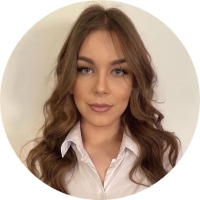 |
Anja Dajic Anja Dajić is a researcher in Diplo’s Data and AI Team. She holds a BA in Signals and Systems from the Faculty of Electrical Engineering, University of Belgrade, and is currently enrolled as an MA student at the same department. Anja is a big enthusiast in the field of artificial intelligence and data processing. In 2021, she participated in a research internship programme organised by the Swiss Federal Institute of Technology Lausanne (EPFL) where she worked on a project in the field of artificial intelligence and image processing. |
|
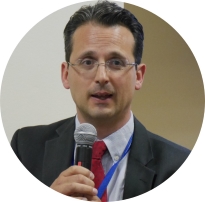 |
Bart Defrancq Bart Defrancq is an Associate Professor of interpreting and programme director of interpreter training at Ghent University. Originally a linguist (PhD from Ghent University in 2002) his current research focuses on simultaneous interpreting at the European Parliament and dialogue interpreting in police and court contexts. He promotes corpus-based research, compiling corpora of speech and interpretation in both aforementioned contexts (EPICG and IMPID), and research into the ergonomics of interpreting technologies. He is the current President of CIUTI “Conférence Internationale Permanente d’Instituts Universitaires de Traducteurs et Interprètes”. |
|
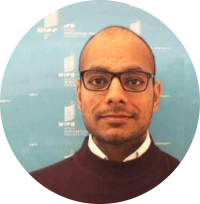 |
Akshat Dewan Akshat Dewan has been working as a Machine Learning Researcher at World Intellectual Property Organization (WIPO) since 2019. He works principally on the development of Speech-to-text systems. Akshat graduated in Electrical Engineering from EPFL in 2012 and since then has worked on building different machine learning applications involving speech and image modalities. He enjoys long-distance running as a hobby. |
|
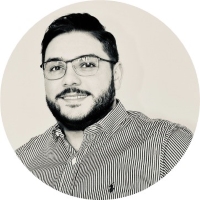 |
Allaeddine Djouama Allaeddine Djouama is a full-stack developer and data scientist who is currently involved in the piloting, development, and deployment of several projects in the field of Machine Learning for International Telecommunication Union (ITU). His main interests are in Neural Machine Translation and Large Language Models. He has been awarded two ITU Staff Awards in 2020 for Teamwork and Innovation. |
|
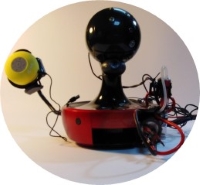 |
IQ’whalo An installation by Professor Vladimir Veljašević from Faculty of Fine Arts, University of Belgrade, representing non-anthropomorphised embodiment of the Artificial Intelligence (AI). It was first presented in 2019 at the Internet Governance Forum (IGF) in Berlin. IQ’whalo uses a large language model (LLM) to generate synthetic text based on the input of policy papers and transcripts from various meetings and conferences. The name is a transcription from the word for coffee maker (“Kuvalo”). Besides being a science fiction reference, Q is also a reference to “Q, the first genderless voice”, developed by many researchers, created to break down the gender binary and the stereotyping that binary brings. IQ’whalo applied their concept by altering the synthesised voice's pitch and creating its own genderless expression. |
|
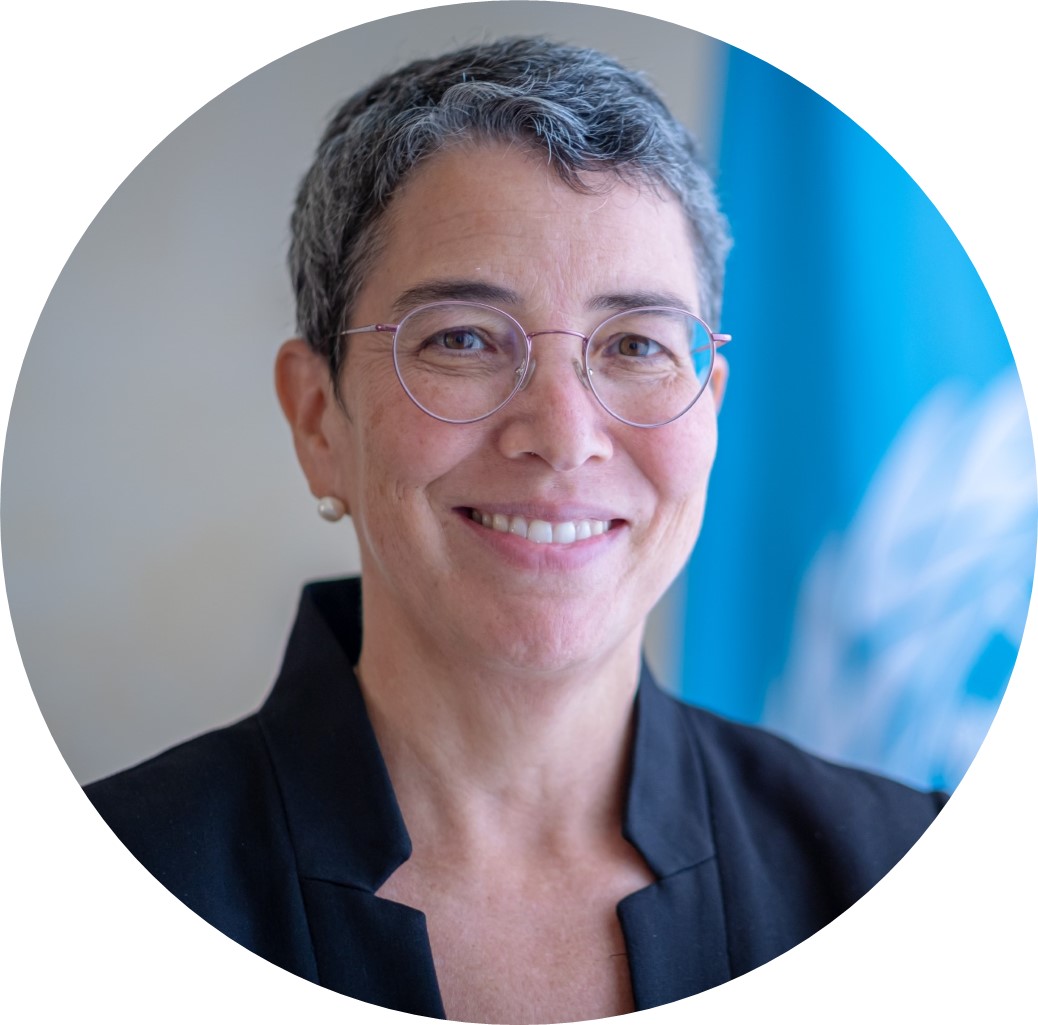 |
Michelle Keating Michelle Keating is the Officer-in-Charge of the Division of Conference Management and the Chief of the Languages Service at the United Nations Office at Geneva and has occupied this post since 1 April 2015. Ms. Keating’s previous positions with International Organizations have taken her around the globe. She started her career in former Yugoslavia with DPKO. She then moved to Tanzania and Rwanda with the International Criminal Tribunal for Rwanda and then the International Criminal Court in The Hague. In these first assignments, Ms. Keating combined the roles of an interpreter and translator while also organizing training and capacity-building programs, advising on interpretation protocols and representing the organizations she was working for in her areas of expertise. Starting from her assignment with DESA at the United Nations Assistance to the Khmer Rouge Trials in Cambodia, Ms. Keating assumed a full-time managerial role which later brought her to Rome as Head of Interpretation at the Food and Agriculture Organization. |
|
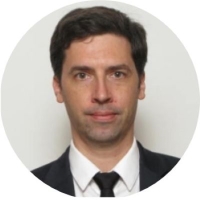 |
Andreas Krauss Andreas Krauss is a career diplomat at the German Foreign Office. His posts abroad include the Consulate General Saratov, the Permanent Mission to the United Nations in New York and the Embassies in Washington and Zagreb. At the Federal Foreign Office, Andreas Krauss has worked in the Personnel Department, the Political Department, the Office of the Foreign Minister, and the Central Department, among others, as well as in the Federal Chancellery. Since summer 2022, he has been Deputy Coordinator for German Personnel in International Organizations. |
|
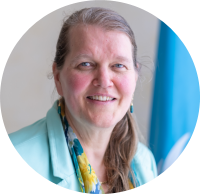 |
Kira Kruglikova Kira Kruglikova is the Director of the Division of Administration of the United Nations Office at Geneva. She has worked for the United Nations since 2007. Her previous positions include Director of the Division of Conference Management, Chief of the Production and Support Service, Executive Officer and Administrative Officer. Before joining the United Nations, she was a Foreign Service Officer with the U.S. Department of State. Ms. Kruglikova served in Tallinn, Geneva, St. Petersburg, New Delhi, Frankfurt and Stuttgart, as well as in Washington, D.C. Prior to her diplomatic service, she worked in manufacturing for a major pharmaceutical company in various locations in the United States. |
|
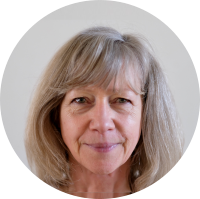 |
Hubertha Kuyf Hubertha Kuyf is a conference interpreter at the Court of Justice of the European Union. For the Court’s Interpretation Directorate, she is in charge of inter-institutional cooperation with the interpreting services of the European Commission and the European Parliament. She has many years of experience in the area of inter-institutional recruitment and testing of staff and freelance interpreters. The organization of inter-institutional accreditation tests and of joint awareness raising and outreach activities to promote conference interpreting are part of her tasks. She is also a member of interpretation related ISO working groups. She holds a degree in Translation and in Conference interpreting from the University of Antwerp, and a degree in Dutch and International Law from the University of Leiden. |
|
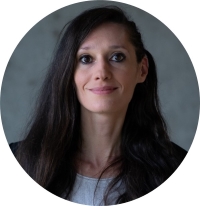 |
Sofia Lobanova Sofia Lobanova is the project manager for UNOG’s Fully Automated Speech-to-Text (FAST) project with the Languages Service of the Division of Conference Management. She also acts as the coordinator for language technologies, computer-aided translation tools, and documentation systems for Geneva. Before joining the UNOG in 2008, she worked as a conference interpreter and translator at the OSCE and IAEA. Sofia holds an executive certificate in Artificial Intelligence and its Applications from Massachusetts Institute of Technology and is currently exploring use-cases for text analytics put forward by the client organizations and meeting participants. |
|
 |
Ahid Manja Ahid Manja is a skilled developer who has been working at UNOG since 2014. During his time at the organization, he has contributed to the development of numerous web applications across different sections. In 2016, Ahid shifted his focus to the Language Support Unit where he specialized in creating websites and applications for Language Service staff and clients. Currently, Ahid is working on the OHCHR digitalization project, demonstrating his commitment to staying at the forefront of technological advancements in the industry. |
|
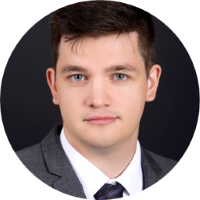 |
Henri Meylan Henri Meylan has been working as a conference assistant at World Intellectual Property Organization (WIPO) since 2019. Since 2020, he has been fully involved in the transition to hybrid mode for decision making meetings at WIPO and the implementation of new conference technology (webcasting with metadata, delegate mobile app). Henri graduated in International Trade from the UIBE, in Beijing in 2019. |
|
 |
Jovan Njegić Dr Jovan Njegić is the Head of Data and AI Team of DiploFoundation. He also works in academia as a lecturer in postgraduate studies. Jovan holds a doctorate in Economics in the field of data science application, and a master’s in Finance. His areas of interest include data science, machine learning, and artificial intelligence, both from philosophical and implementational perspectives. |
|
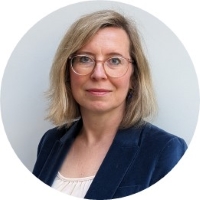 |
Dorota Nofska-Sierant Dorota Nofska-Sierant is the Head of the Polish Language Unit at DG Interpretation (DG SCIC), European Commission since 2014. Born in 1975 in Gdansk, Poland. Alumna of the University of Gdansk (English philology) and Adam Mickiewicz University in Poznan (post-graduate program in conference interpretation at the School of Translation, Interpretation and Languages). Working from EN, FR, DE into PL and PL into EN. Staff interpreter at DG SCIC since 2005. Coordinator of the Polish Presidency in 2011. Member of the Interinstitutional Test Group from 2021. SCIC Test Coordinator since 2023. Accredited internal coach at DG HR of the European Commission. |
|
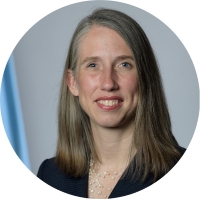 |
Cherith Ann Norman Chalet Cherith Norman Chalet is the Assistant Secretary-General for General Assembly and Conference Management in the Department for General Assembly and Conference Management (DGACM), since March 2021. Ms. Chalet has many years of experience in foreign policy and international issues and has considerable knowledge and involvement in the United Nations intergovernmental machinery. She has served as a U.S. Ambassador and representative to the General Assembly and its related Committees, as well as to the Security Council and to the Funds and Programmes. She has held several senior management roles within the U.S. Mission to the United Nations, most recently as the Deputy Permanent Representative and Ambassador for United Nations Management and Reform with primary responsibility on United Nations reform matters. Prior to joining the U.S. Mission, Ms. Chalet served in Washington, D.C. as a senior legislative liaison between the State Department and the United States Appropriations and Budget Committees and Members of Congress. She was previously a Constituent Service Representative for a U.S. Member of Congress. |
|
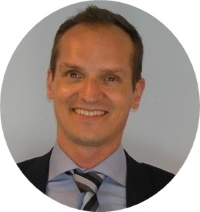 |
Jonas Pasquier Jonas Pasquier is acting Deputy Permanent Representative for multilateral affairs at the Permanent Mission of Switzerland to the UN Office and other international organizations in Geneva. He also leads a team which covers both transversal issues such as peace/security or digital policy and Geneva-based UN specialized agencies. Prior to this, he spent four years at the Mission of Switzerland at the UN in New York, where he covered MENA files and then led the UNSC team. His diplomatic career also includes postings in Berlin and Bern (Human Rights policy office). A political affairs and global governance specialist, Mr. Pasquier held previous positions at the University of Geneva and at the Swiss Parliament. |
|
 |
Cathy Pearson Cathy Pearson is a trained conference interpreter (Universities of Oxford and Bath). She began working first as a freelance interpreter at the EP (1996-2001) and then as a staff interpreter at the EC (2001-2016). She moved on to become Deputy Head of the Multilingualism and Knowledge Development Unit in DG Interpretation and the Project Manager for the Knowledge Centre on Interpretation (EC 2016 - 2021). In September 2021 she returned to the EP to head up the Multilingualism and Succession Planning unit at DG LINC, the European Parliament interpreting DG. She is the test coordinator for the EP and has been Chair of the Inter-institutional Test Group since January 2022. |
|
 |
Francesco Pisano Francesco Pisano is the Director of Library & Archives at UN Geneva. He has a professional background in humanitarian affairs, risk management, and research on knowledge systems and an education background in international relations with a specialisation in diplomatic studies and conflict resolution, and law with a focus on public international law. He joined the United Nations in the area of humanitarian affairs, serving with Department of Humanitarian Affairs (DHA) and United Nations Office for the Coordination of Humanitarian Affairs (OCHA). He later served as Director of Research, Technology Applications and Knowledge Systems at the UN Institute for Training and Research (UNITAR). Before joining the UN, he worked in the private sector and as a geopolitical analyst. |
|
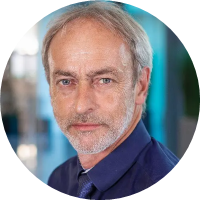 |
Bruno Pouliquen Bruno Pouliquen has been working at WIPO since 2009, being in charge of applying and exploring machine learning techniques to intellectual property applications. Areas of interest: machine translation, classification (image & texts) and speech recognition. Having a PhD in computer science (text mining in the medical domain) he has been specializing in multilingual text mining (European Commission). He has authored over 60 research papers in the computational linguistic domain. |
|
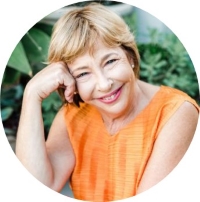 |
Robin Raskin Robin Raskin is the Founder of The Virtual Events Group, a community that explores how we will meet in a tech-first future. A long-time journalist, author, publisher, event producer, and industry advocate, Raskin was one of the early editors of PC Magazine, and one of the first women in technology publishing. She founded FamilyPC, and created Yahoo!Tech. In 2008 Raskin founded Living in Digital Times (LIDT), which was acquired by the Consumer Technology Association (CTA). She writes a weekly column about the intersection of technology and the economy for Techonomy. Raskin plays an active role in high-tech policy issues. She won a lifetime achievement award from the CTA in 2020. |
|
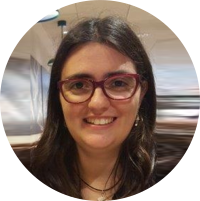 |
Maria Recort Ruiz Maria Recort Ruiz is a philologist, translator and terminologist who works as Document Services Coordinator and Terminology Manager at the International Labour Organization in Geneva. She is responsible for the production and management of official documents, management of terminology work and the use of new CATT tools to improve working methods. She holds a Degree in Slavic Philology from the University of Barcelona, where she specialized in Russian and Polish Language and Literature, and Linguistics; a Master in French and Comparative Literature from the University of Montpellier, where she conducted research on the roman populaire at the beginning of the 20th century; and a Master in Specialized Translation from the University of Geneva. Before joining the ILO, Maria worked as a freelance translator and editor for international organizations and the private sector. |
|
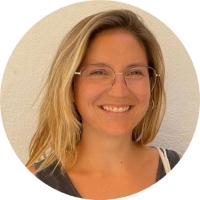 |
Tania Romera Tania Romera is the Quality Assurance Specialist for the Fully Automated Speech-to-Text (FAST) project at the Language Service within the Division of Conference Management, UN Geneva. Her professional background centers on speech recognition applications such as Amazon and Apple’s artificial intelligence digital voice assistants, Alexa and Siri. These technologies immersed her in natural language processing, natural language understanding and the use of machine learning. Tania has also worked in software localization focusing on major Latin languages. Since she joined the FAST project, she has been working on linguistic and functional bug reporting which has allowed for the development of a quality assurance methodology with a view to creating portable guidelines for all six official UN languages. |
|
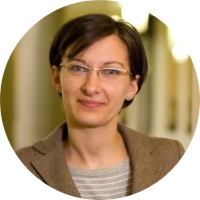 |
Alina Secară Alina Secară is Senior Scientist in the University of Vienna Centre for Translation Studies where she investigates accessibility practices and technologies, and teaches modules related to accessibility and audiovisual translation, as well as multimedia localization processes and technologies. A UK Stagetext accredited theatre captioner, she worked with theatres across the UK to integrate captioning for the Deaf and Hard-of-Hearing audiences, and provided customized hands-on training in subtitling and captioning to EU and UN in-house linguists. She managed the UK University of Leeds MA in Audiovisual Translation Studies for over a decade and was part of a variety of EU-funded e-learning translation technologies projects such as eCoLoTrain, eCoLoMedia and DigiLing. |
|
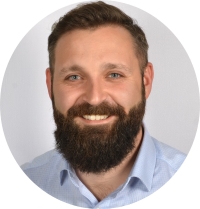 |
Alexander Stöger As the owner and managing director of ALEGER, Alexander Stöger is at the helm of a company that provides Augmented Reality (AR) solutions for the public, health, and manufacturing sectors. With nearly a decade of entrepreneurial experience in the AR industry, with a focus on communication and meetings, Alexander Stöger is also driven by his mission to make the world a better place. |
|
|
|
Tatiana Valovaya Tatiana Valovaya is the 13th Director-General of the United Nations Office at Geneva and the first woman to occupy this position. Ms. Valovaya has more than 35 years of experience in public service, diplomacy and journalism. She began her career in 1983 in the editorial office of the Economic Gazette in Moscow, first as a correspondent, then as deputy editor of the Department of World Economy. From 1989 to 1994, Ms. Valovaya served at the Permanent Mission of the Union of Soviet Socialist Republics to the European Union and at the Permanent Mission of the Russian Federation to the EU, with responsibility for financial and economic cooperation. Between 1995-1997, she worked at the Presidential Administration of the Russian Federation, where she managed relations with the statutory bodies of the Commonwealth of Independent States (CIS). Ms. Valovaya then served as Head of the Monetary and Financial Policy Directorate at the Ministry for the CIS. 1999-2012, she worked in the Government administration of the Russian Federation as Deputy Director and then Director of the Department of International Cooperation. Ms. Valovaya joined the Eurasian Economic Commission in 2012 as a Member of the Board (Minister), responsible for integration and macro-economic issues. |
|
 |
||
|
|
||
|
|
|
|

